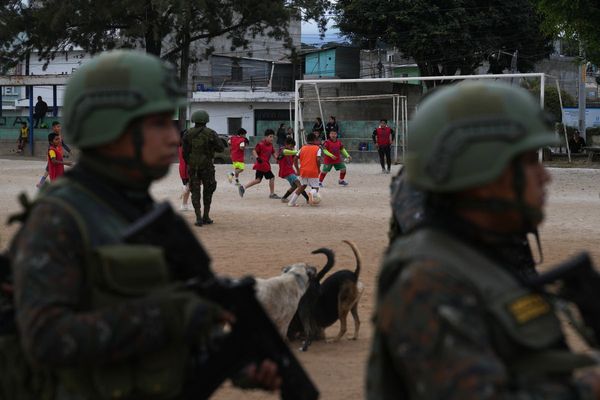
While we have saluted the historic courage of 1,000+ global multinational corporations which fully exited Russia, we need to once again explicitly call out 400 major multinationals that continue to do business in the country, generating hundreds of billions of dollars in support of Putin’s mass slaughter in his assault on a peaceful neighbor 18 months into the conflict.
Since the beginning of Russia’s invasion of Ukraine, we have been carefully tracking and updating our publicly available, highly publicized list of companies exiting Russia on a daily basis. In fact, many have credited our list with helping to catalyze these exits, the largest exodus of global enterprises in world history. President Biden has cited the corporate exodus in media interviews as well as in private conversations with foreign leaders. Most importantly, these major corporate exits have badly crippled Putin’s economy, which limps along by cannibalizing its state-controlled enterprises, as well as the ongoing operations of over 400 feckless major multinationals.

Listed below are some of the most egregious cases of companies that continue to do business as usual in Russia (ranked as F on our A-F grading scale). Similarly, companies that we rank as D on our scale continue substantive business operations while suspending trivial tertiary operations such as advertising and marketing, or unspecified future investments.
- Alibaba – This huge Chinese e-commerce retailer continues to operate in Russia through its AliExpress joint venture with ample sales into Russia and a freely accessible Russian website that continues to show fresh new daily discounts.
- Auchan – The massive French retail chain continues to operate no less than 240 stores in Russia, employing thousands of people. Worse yet, Auchan appears to be doubling down by stepping into the vacated market shares of its erstwhile Western suppliers who now refuse to sell into Russia by filling many of its Russian stores with almost exclusively its own private-label products.
- Babolat – The French tennis racquet manufacturer claims to have ceased doing all business with Russia, but a closer examination reveals a more muddled reality. Babolat’s activities in Russia have long been carried out by an independent local distributor, with whom Babolat has apparently ceased all business transactions. However, Babolat’s local distributor continues to sell Babolat products and represents itself as a Babolat-affiliated distributor, with a seemingly never-ending supply of Babolat products extending far beyond normal inventory.
- Benetton – The Italian conglomerate has explicitly defended its position to continue doing business as usual in Russia by defending the sanctity of its “longstanding relationships with local partners and a network of stores employing over 600 families”. But this excuse hardly tugs at the heartstrings, as Benetton continues to earn millions in revenues in Russia, which help sustain Putin’s failing economy.
- Carl’s Jr. – Bafflingly, the fast-food chain not only continues to do business in Russia but is proud of it, posting Russian-language advertisements featuring striking Russian models eating French fries to its Instagram page as recently as a day ago. Indeed, its Russian Instagram page has posted nearly daily advertisements every day for the last year, showing Russians (overwhelmingly striking young females) feasting on American fast food as if there was nothing out of the ordinary.
- Cloudflare – Cloudflare is one of the few Western technology companies that continue to provide IT services into Russia, arguing that Russians deserve continued internet access provided by Cloudflare. However, this approach ignores the fact that all of Cloudflare’s cloud competitors have exited Russia while overstating its own importance–Russians would hardly lose their ability to access the internet without Cloudflare.
- Emirates and Etihad Airways–Many Middle Eastern and South Asian airlines have taken advantage of the fact that Western airlines no longer fly over Russian airspace by shamelessly stepping into vacated Western carrier routes and offering shorter, cheaper routes than Western airlines are now able to do. These flights, ironically filled with Western travelers, are undermining U.S. carriers and paying flyover fees to Russia. However, the risk of flying over Russia is that when flights are occasionally diverted or grounded in Russia, Western passengers are essentially stranded and in greater peril.
- Guess – While other peer companies are flocking to the exits, this clothing giant is inexplicably doubling down on its Russian investments by reacquiring stakes in its Russian business from local partners while apparently increasing revenues significantly post-invasion.
- Huntsman Corp – The chemicals giant stubbornly refuses to exit Russia under the guise of caring for its Russian employees, but at this point, when every competitor has exited, there is no compelling excuse.
- Mitsui – The Japanese conglomerate is re-upping its investments and increasing its ownership stakes in Russian energy joint ventures while helping Russia replace the technical know-how lost with Western corporate withdrawals.
- Nestle – The Swiss consumer goods giant promised to sell only “essential” products into Russia, citing baby formula as an example, but the reality is they continue peddling pet foods, pralines, chocolate bars, and other items that are hardly essential.
- Sbarro Pizza – The casual pizza chain’s locations webpage continues to advertise its Moscow site in addition to recent expansions in Russia with its local operator partner.
- Shell – Although the energy giant pledged to suspend new purchases of Russian commodities, they are continuing to fulfill existing contracts, taking huge amounts of Russian gas that is crucial to Putin’s revenues.
- Stryker – The orthopedics device maker continues sales, deliveries, and imports to Russia under the guise of providing medically essential products–even though Russia accounted for less than 0.5% of its total sales. However, the economic war is the humanitarian option as the last chance to prevent the massive spread of catastrophic war between nations with 12,000 thermonuclear warheads pointed at each other.
- TGI Friday’s – All TGI restaurants in Russia are owned by independent franchisees, and TGI Friday’s argues that those local franchisees have made the decision to stay open. However, other franchise-based companies such as Starbucks bought out their franchisees at the start of the invasion.
- Unilever – Like other consumer goods giants, Unilever continues to sell consumer goods into Russia despite ample consumer boycotts under the guise of providing “essential” products. Cornetto ice cream hardly seems essential.
- Zimmer Biomet – The medical device maker continues to supply hospitals in Russia under the pretext of providing medically essential products for humanitarian purposes. However, there are alternatives available as substitutes in Russia for needed medical products.

Activist groups like B4Ukraine and the Moral Rating Agency have commendably echoed calls for these companies to exit. But even beyond the feckless 400 multinational corporations, our friends and research partners at the Kyiv School of Economics have tracked over 1,000 more companies that continue to operate in Russia, largely European and smaller (defined as <$100 million in global sales). Activist groups like B4Ukraine and the Moral Ratings Agencies have echoed such calls.
Even worse, there have been some companies that backtracked and reneged on their initial promises to exit Russia–and we have had to downgrade them on our list accordingly. Some of the largest, most well-known companies that are failing to keep their promises to leave Russia include:
- WeWork – The famous co-working space real estate company promised to leave Russia in March 2022. Not only has WeWork not left Russia, anyone can continue to book a workspace in Russia on the WeWork app.
- Heineken - The beer giant promised to leave Russia in March 2022–but continues to drag its feet on actually exiting, under the guise that it is awaiting Russian regulatory approvals for its sale to go through–even though 1,000+ global companies have seamlessly divested their Russian businesses without it taking 18 months and counting. Putting out statements every few months that "we are still trying to exit and intend to keep our word" is not the same as actually exiting–especially as Heineken is continuing to transact millions of dollars of business in Russia.
- Xiaomi - The Chinese cell phone giant (basically the Apple of China) initially sought to retreat from Russia post-invasion as was widely reported but then backtracked and stepped into the vacated footprints of their erstwhile Western rivals who genuinely departed Russia, taking their market share and building a dominant position in the Russian smartphone market.
- Reckitt Benckiser - The British consumer goods giant promised to exit Russia in April 2022, pledging to divest all assets, yet 18 months later they have not even found a buyer–and barely seem to be making any effort to actually divest, while continuing to do millions of dollars from business in Russia every day.
- Philip Morris - Similarly, the tobacco giant promised to exit Russia in March 2022, promising to transfer ownership. The tobacco company has explicitly backtracked with the CEO claiming that he cannot find any buyers and that the regulatory constraints are too onerous.
- Mondelez - Mondelez has promised time and time again to evolve the Russian business into a "stand-alone," whatever that means. Yet it shows no tangible signs of progress towards exiting and continues to transact in Russia despite global boycotts.

The companies that remain in Russia represent a massive amount of revenue funding Putin’s coffers. While there is very little transparency into exactly how much, our best estimate is that the Feckless 400 represent at least $200 million in Russian revenues.
Sure, the companies that left represent a far greater chunk of revenues lost to Putin. On the whole, the companies that have reneged or backtracked on their commitments to leave Russia are few and far in between. After all, despite the incorrect assertions of some unfamiliar European writers, the business exodus has already had a crippling effect on the Russian economy.
Nevertheless, every penny is funding a desperate Putin and undermining Western economic pressure on Russia. There should be no excuse for corporations to sustain this lifeline. It’s past time for all Western multinationals to exit Russia as long as the invasion of Ukraine continues.
Sadly, at the onset of World War II, Shell, Texaco, Woolworth’s, and Chase Manhattan were still working with Nazi Germany until public pressure forced their exit. In apartheid South Africa, President P.W. Botha had convinced many that the regime was a victim of Western diplomatic intrigue and not villains–until business retreats undermined his messaging. In 1991, during a private lunch conversation with South African anti-apartheid leader Bishop Desmond Tutu, he told us that the exit of private sector firms in 1988 greatly enhanced the force and legitimacy of international sanctions. It showed average white South Africans that they had become a rogue nation to the global marketplace. Botha was forced to step down. Imprisoned human rights leader Nelson Mandela was freed from prison after 27 years–and elected president four years later.
Now, the 400 multinationals propping up Putin can make a similar difference with their exit.
Jeffrey Sonnenfeld is the Lester Crown Professor in Management Practice and Senior Associate Dean at Yale School of Management. He was named “Management Professor of the Year” by Poets & Quants magazine.
Steven Tian is the director of research at the Yale Chief Executive Leadership Institute and a former quantitative investment analyst with the Rockefeller Family Office.
The opinions expressed in Fortune.com commentary pieces are solely the views of their authors and do not necessarily reflect the opinions and beliefs of Fortune.
More must-read commentary published by Fortune:
- ‘The global economy is due for a reality check,’ warns the central banks‘ bank
- The forced return to the office is the definition of insanity
- The Supreme Court can end affirmative action–but it can’t reverse the course of history
- True believers, profiteers, and curious creators: Meet the 5 schools of thought that dominate the A.I. debate







